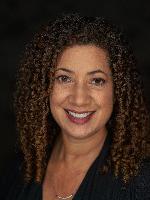


According to the National Association for Media Literacy Education, media
literacy is the ability to access, analyze, evaluate, create, and act using all
forms of communication. Media literacy means anything from interpreting
emojis to understanding underlying messages in online advertisements to
producing viral video content and recognizing native advertising. With so
many often politically-motivated bots, fake news postings, and data breaches, it’s more important than ever that students (and adults!) critically analyze
information.
But this doesn’t have to mean boring lectures on using .edu websites, or
looking for the author name on a webpage. It’s about digging deep into
the logic of how the internet has shaped our perception of information, and
how we can combat the algorithms that try to box us into one experience.
In this session, participants will understand how media messages shape
our culture and society, and be able to advocate for the inclusion of
comprehensive media literacy at all grade levels. They will also have a
better understanding of the options, strategies, and available resources for
searching for analyzing the credibility of news and other media. With this
information, participants will develop lessons in authentic contexts to meet
the needs of their students.
We have used this content in a K-12 district with positive ratings and
additional teachers requesting to participate in future sessions.
In addition, this session was previously presented at regional and state-
wide conferences to very positive reviews. We continue to receive positive
comments about the quality and applicability of the content.
Presentation Outline:
(10 min) Introduction and context including the Stanford Study about lack
of media literacy amongst students
(20 min) Understanding bias and current skill level related to information
analysis: Participants will evaluate themselves using one or more online
tools.
(15 min) How Do We Find the Truth: After learning more about how search
algorithms work, participants will explore and practice strategies for
effective searching, as well as the use of Wikipedia as a search engine.
(20 min) Participants will learn and practice strategies for analysis of online
information in text, graphic, and video form.
(15 min) Putting it All Together: Participants will remixing lesson designs to
incorporate media literacy elements
(10 min) Share and closing
https://ed.stanford.edu/news/stanford-researchers-find-students-have-
trouble-judging-credibility-information-online
https://www.ncbi.nlm.nih.gov/pmc/articles/PMC4291508/
https://www.commonsense.org/education/toolkit/news-and-media-literacy
https://newslit.org/educators
https://www.factcheck.org/2016/11/how-to-spot-fake-news
https://firstdraftnews.org
https://www.poynter.org/newsu